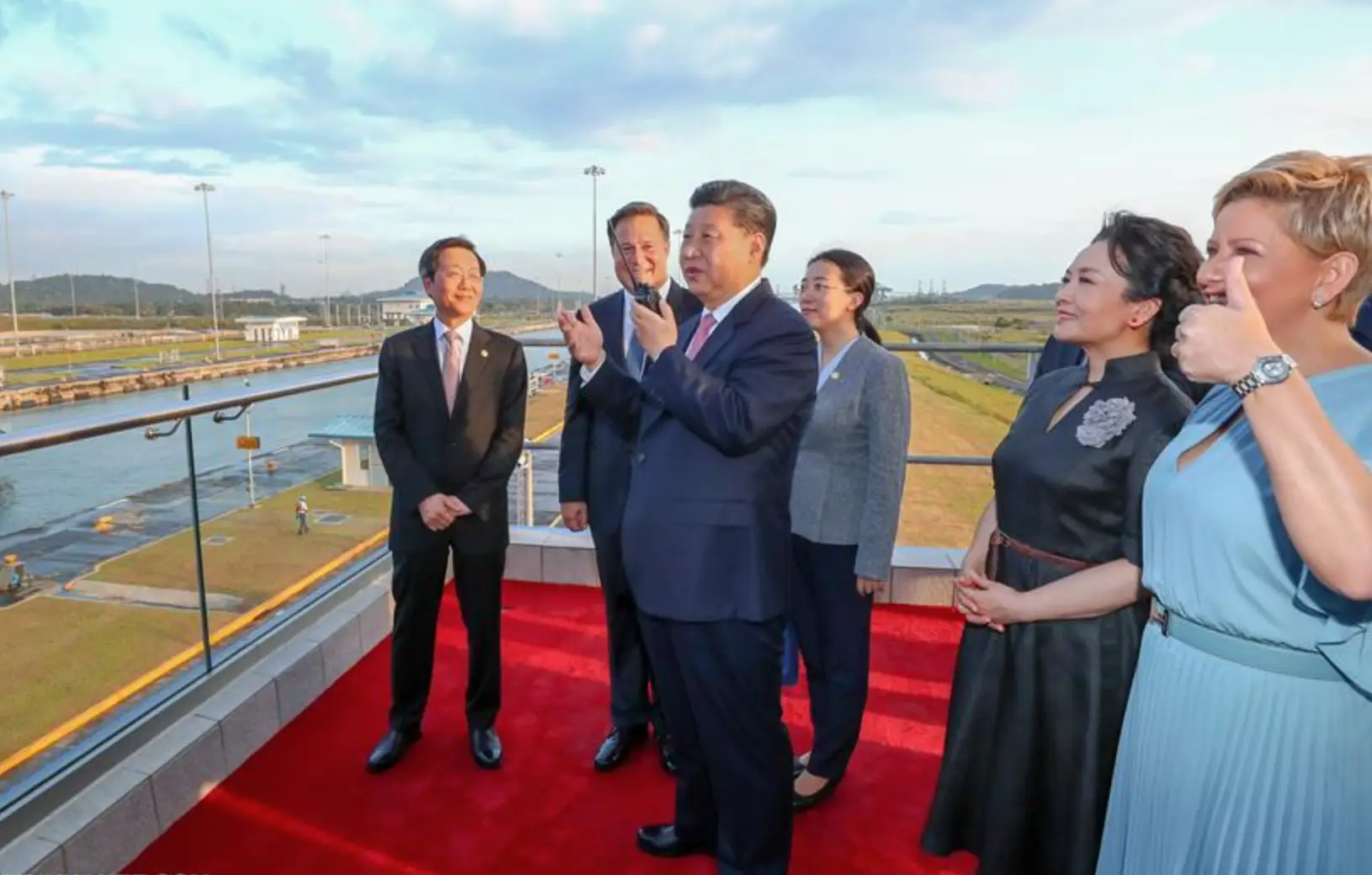After Donald Trump declared, on more than one occasion, that the United States would regain control of the Panama Canal in the face of China’s advance in the hemisphere, several sectors of public opinion were doubtful. Even among some Latin American specialists with whom I share discussion forums, the question arose whether Trump’s statements about the Chinese appropriation of the Canal are well-founded or, on the contrary, are rhetorical traps to force the government of José Raúl Mulino to align itself with the U.S. agenda.
Paradoxical as it may seem, I believe it is a mixture of both. As some reports by the Open File center on the influence of the People’s Republic of China (PRC) in Panama and the presence of Chinese state-owned companies in Central America show, it is evident the increase in operations that the Chinese party-state has deployed in the region during the last decade. On the other hand, it is difficult to ensure that some entities linked to Hong Kong respond to the interests of the Chinese Communist Party (CCP), as do companies based in mainland China.
The status of Hutchison Holdings
In Trump’s speech, as in Marco Rubio’s during his confirmation hearing as Secretary of State, it seems that the fundamental concern surrounding the Panama Canal is the operations of Hutchison Ports PPC, a Hong Kong company that controls the ports of Cristobal and Balboa at both ends of the transoceanic corridor.
However, the ownership of this company, whose origins date back to the 19th century, has historically been private. Hutchison Ports PCC is a subsidiary of CK Hutchison Holdings Limited —formerly Hutchison Whampoa— which, in 1997, was granted the concession to operate the aforementioned ports. This occurred a few months before the Sino-British Joint Declaration, by which the United Kingdom ceded sovereignty over Hong Kong to the People’s Republic of China.
Thus, since July 1997, Hong Kong has been an inalienable part of Beijing, under the mechanism of one country, two systems. As a result, the region enjoyed, for almost two decades, political autonomy —enshrined in the Basic Law— and financial freedom. This fact allowed the formation of a party system, the emergence of social movements such as scholarism, and the projection of Hong Kong as a global financial center, with one of the most important stock exchanges in the world. It was in this political, cultural and business environment that Hutchison Ports developed a large part of its operations, after having been granted the management of the ports of Balboa and Cristobal.
Nevertheless, after rising as the leader of the CCP in 2013, and especially in the years leading up to the COVID-19 pandemic, Xi Jinping undertook several efforts to stifle Hong Kong’s political autonomy. The most effective of these was the 2020 National Security Law, which dismantled pro-democracy movements in the former Special Administrative Region, suppressed freedoms, and enabled the imprisonment of autonomy advocates. Subsequently, Xi also launched the “Greater Bay Area” project to integrate Hong Kong and Macau with the rest of China. As a result, Hong Kong’s appeal as an oasis of freedom amid communist rule has been gradually eroded.
For these reasons, it is extremely difficult to determine the extent of the CCP’s influence over Hutchison Ports’ decisions. It is undeniable that Xi Jinping’s government has reduced national private enterprise to a minimum—not only through an economy centered on “new productive forces” and large subsidies to state-owned companies but also by taking control of the boards of various Chinese multinational corporations.
As Professor Yong Deng mentions in his book China’s Strategic Opportunity (2022), by 2018, nearly 50% of private companies in China had established a committee with CCP members, compared to just 4% in 1993. However, Hutchison Holdings appears to maintain solid levels of transparency, as its board members can even be consulted on its website. The Panamanian government’s decision to initiate an audit of this company’s activities in the Canal aims to clarify any doubts regarding the CCP’s involvement.
Other Chinese Entities in the Canal
Beyond concerns over Hutchison Holdings’ potential ties to the CCP, there are several projects around the Panama Canal operated by Chinese state-owned companies. Through subsidiaries and joint ventures, China Communications Construction Company (CCCC) has been involved in constructing and managing infrastructure in the transoceanic corridor. As is almost common knowledge among those who study China’s global operations, CCCC has faced World Bank sanctions for engaging in fraudulent practices.
In Panama, CCCC was responsible for constructing the Amador cruise terminal through a consortium formed by its subsidiary, China Harbour Engineering Company (CHEC), and the Belgian firm Jan de Nul. This terminal is located at the Pacific entrance of the Canal, and although it is a port for tourist use, recent reports indicate that liquefied petroleum gas tankers have docked there.
Additionally, CHEC is also involved in the Consorcio Panamá Cuarto Puente, the consortium responsible for building the fourth vehicular bridge over the Panama Canal. Although the project is still in its early stages, it has already shown irregularities. According to Panamanian press reports, the contract for this project was awarded to the CCCC subsidiary amid suspicions of bribery.
Juan Carlos Varela, former president of Panama, met with high-ranking officials from these corporations during the bidding process. In September 2017, he met with Tang Qiaoling, general manager of CHEC, and in November of the same year, with Chen Fen Jian, president of CCCC. Finally, in June 2018, the fourth bridge contract was awarded to these companies, despite them receiving the lowest score in the technical evaluation.
While Hutchison Holdings’ status regarding China remains unclear, the activities of predatory companies such as CCCC and CHEC should concern not only the U.S. government but also Panama. These Chinese state-controlled firms have sought to expand their influence over critical infrastructure in the canal nation and throughout Latin America.
This is evident in CCCC’s failed attempt to build the Panama Colón Container Port terminal, where the concession was revoked from Chinese companies Shanghai Gorgeous and Landbridge Group due to contractual breaches. Their expansion is also notable in countries such as El Salvador, where CHEC recently developed the newly inaugurated tourist pier at La Libertad port, and in Colombia, where the same company is carrying out the ongoing construction of Bogotá’s first metro line.
*Machine translation proofread by Janaína da Silva.













